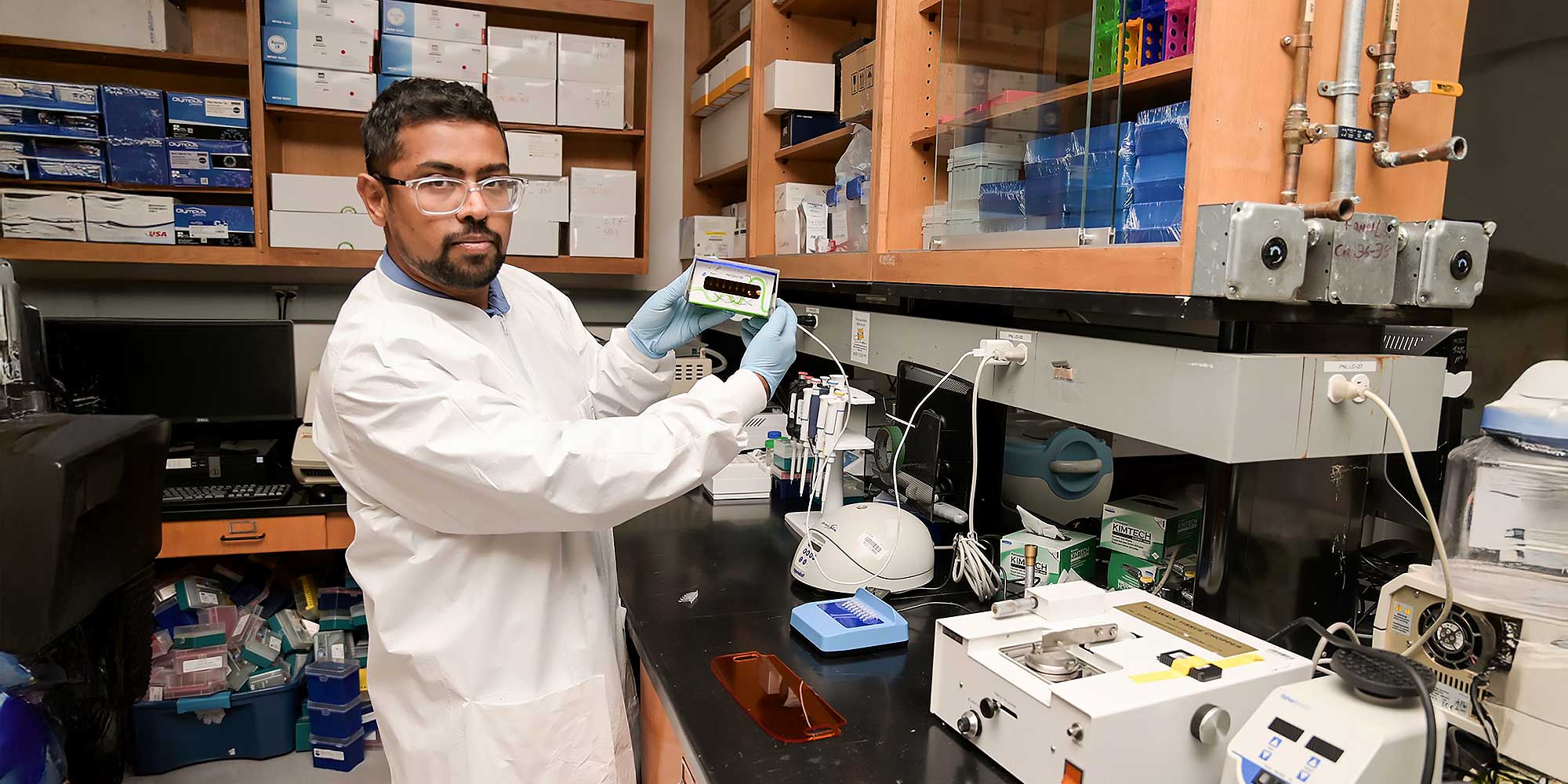Those familiar with the concept of gene editing may be familiar with the tool known as CRISPR, which researchers use to actually modify the genomes of living organisms.
While the technology is by no means mature — it received the Nobel Prize in Chemistry in 2020 — University of Florida researchers have identified a major improvement that could allow the tool to target virtually any sequence in an organism’s DNA.
The implications are huge for such research areas as cancer detection and infectious disease testing. The team showed they could spot tiny mutations in cancer genes that current methods often miss. Detecting these mutations early could mean earlier diagnoses and better treatment of a variety of cancers.
Traditional CRISPR systems can only access a tiny fraction, around 1 to 2 percent, of the human genome, noted Piyush Jain, Ph.D., a project lead and an associate professor in UF’s Department of Chemical Engineering. With the new system, dubbed CRISPR-LEAP, Jain’s team believes they have unlocked a way to bypass this limitation, opening the door to targeting virtually any sequence in our DNA.
The work is described in an article recently published in Nucleic Acids Research. Santosh Rananaware, Ph.D., a collaborator in Jain’s lab, is the study’s lead author.
“Think of it like upgrading from an old-fashioned landline to a smartphone,” explained Jain. “The landline only works if you’re standing next to it, but the smartphone connects anywhere. CRISPR-LEAP is like that.”
CRISPR-LEAP turns a rigid system into a flexible one, opening doors that were once locked.
– Piyush Jain, Ph.D., Associate Professor,UF’s Department of Chemical Engineering
The science
The metaphor of a locked door is an apt one, as Jain compares editing genomes to using a special key to unlock a door. In imagining a lock and its matching key, it’s always the case that if even one tooth on the key is wrong, the lock won’t open. Every piece must fit perfectly for the system to work correctly.
The CRISPR-Cas system, as the original system is known, is similar. It exploits a naturally occurring process by which bacteria protect themselves from invading viruses and bacteriophages by inserting pieces of their DNA into the host genome.
Scientists program the tool to find a specific spot in the target DNA using nearby “tags,” called PAMs, as landmarks by which to navigate to the incision point. But if the landmarks aren’t there or are unclear, no incision can be made.
Jain’s lab has found that the special version of CRISPR, called AsCas12a, can open the lock even if the key isn’t exactly right, or includes an extra piece. Instead of failing, the system simply forms a loop and keeps going.
Implications for the future
The newly improved tool could enable future pandemic tests that wouldn’t require waiting days for accurate results. LEAP could make tests that work in under 30 minutes in a clinical setting. According to Jain, the test would be able to detect the virus even if its genome changed.
Jain added that the tool could hopefully enhance personalized medicine. A CRISPR tool that easily tolerates variations in DNA could enable personally tailored medical treatments for the public.
“We believe this discovery can help bring cutting-edge diagnostics to the clinic and even the home,” said Rananaware. “It’s about turning deep science into tools that improve people’s lives.”

